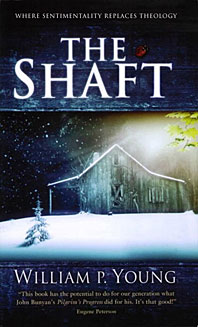Apr
11
2009
Chuck Lawless, Jr. writes:
I recently read a book by a mainline pastor who longs for the churches of his denomination to grow again. Comparing those churches to growing churches, he hinted throughout the book at what he could not bring himself to say forthrightly: growing churches are usually characterized by conservative theology…
 Thom Rainer’s works… have shown that churches that grow by reaching non-believers have a theology that is best described as conservative and orthodox. The bottom line is this: theology really does matter if we want to grow biblical, healthy churches.
Thom Rainer’s works… have shown that churches that grow by reaching non-believers have a theology that is best described as conservative and orthodox. The bottom line is this: theology really does matter if we want to grow biblical, healthy churches.
We conservatives know this truth, and we are quick to remind others of this fact. What we are not so quick to acknowledge is the focus of this blog: we do a poor job of teaching the very theology that we claim is so important.
We think that our church members understand and believe our basic doctrine, even while those same members are learning their theology from TV talk show hosts, popular television preachers, or the latest religious novel.
Do an anonymous survey of your congregation’s beliefs, and see what you learn. If the majority knows and believes basic biblical doctrine, your church is more an exception than the norm.
Read more for practical tips on teaching theology.
Comments Off | tags: Church Growth, Preaching | posted in Biblical Theology, Christian Life
Apr
11
2009
Preach from the Bible, and from the Bible only. Again, does this need to be said? One thing’s for sure. The Bible is fascinating, disturbing, offensive, sweet, alarming, comforting, stretching, shocking, controversial, caressing, strengthening. No way are you and I that interesting. Let’s put the Bible front and centre and let it be itself and do its thing, whatever the impact. Submerging the Bible for the sake of our cool personas isn’t really cool at all. It’s a way of avoiding risk, chickening out.
Dr. R. Albert Mohler Jr
Comments Off | tags: Compromise, Preaching | posted in Quotes
Apr
11
2009
Centered on recent events, preaching inevitably loses most of its transformative power. From apostolic times, the task of preaching has never been a matter of providing a “religious insight” into what’s going on, a new slant on what everyone already knows. The purpose of apostolic preaching was to announce an event that, according to Paul, no one could know without a preacher. The point of preaching is not to answer questions that are already circulating. The point is to challenge the entire worldview that gives rise to those questions, and to announce the reality of a new world in which all the old questions have to be reformulated or discarded altogether.
Peter J. Leithart, Of Preaching and Newspapers.
Comments Off | tags: Peter Leithart, Power of the Gospel, Preaching | posted in Christian Life, Quotes
Apr
10
2009
The prime mover in history is always God. God creates the world and tells men what to do, and men do it, and then God comes and judges them, and tells them to do something else. History moves when God speaks. That is the reason preaching is so important. When the word of God is sounded out into a culture, history begins to move. People can no longer remain neutral, or pretend to be neutral.
James B. Jordan, The Book of Jonah lectures www.wordmp3.com
Comments Off | tags: Culture, James Jordan, Jonah, Preaching | posted in Biblical Theology, Quotes
Apr
8
2009
Douglas Wilson on preaching to the whole man
In his great book The Abolition of Man, C. S. Lewis prophetically wrote of what has become one of the defining sins of our age. We veer erratically between two extremes — rationalism is arid and dry, and ultimately unsatisfying, and this provokes a reaction into swamp-like mysticism and emotionalism. Neo-classicism begets the rebellious child romanticism, and romanticism begets the rebellious child of a can-do technopoly. As we swing from one extreme to another, we miss the point of balance, which is that of having our affections under the authority of the God who made the world the way He did.
Lewis’ words are both blunt and revealing. He says we laugh at honor but then are shocked to find traitors in our midst. We castrate and bid the geldings be fruitful. The end result is what Lewis called “men without chests.” This has come about because an arrogant rationalism has dismissed all notions of sentiment, loyalty, and affection as “nothing but” mere sensation, without any objective connection to the outside world. This in turn provokes a revolt of the emotions, a revolt that wallows in those sensations, but does so in a way as to prove the point of the rationalists.
One of the chief culprits in allowing this state of affairs to develop has been the delinquency of the pulpit. Continue reading
Comments Off | tags: C. S. Lewis, Doug Wilson, Preaching | posted in Quotes
Thom Rainer’s works… have shown that churches that grow by reaching non-believers have a theology that is best described as conservative and orthodox. The bottom line is this: theology really does matter if we want to grow biblical, healthy churches.

























